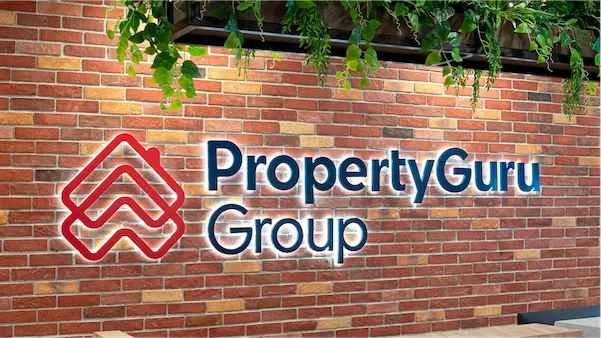Table of Contents
Disclaimer: Asian Century Stocks uses information sources believed to be reliable, but their accuracy cannot be guaranteed. The information contained in this publication is not intended to constitute individual investment advice and is not designed to meet your personal financial situation. The opinions expressed in such publications are those of the publisher and are subject to change without notice. You are advised to discuss your investment options with your financial advisers, including whether any investment suits your specific needs. From time to time, I may have positions in the securities covered in the articles on this website. Full disclosure: I do not hold a position in PropertyGuru at the time of publishing this article. To reiterate, this post and the below presentation are for informational and educational purposes only - not a recommendation to buy or sell shares.
PropertyGuru (PGRU US - US$577 million) is a Singapore-based operator of real estate listing websites. Think of it as the Zillow of Southeast Asia.
Its websites and apps match property owners with potential buyers or renters. 37 million users visit PropertyGuru’s platforms yearly, where they can access 2.9 million property listings.
PropertyGuru dominates the real estate portal industry across Singapore, Malaysia, Thailand, and Vietnam. PropertyGuru Singapore contributes half of the revenues and remains the group's crown jewel.
I’m generally wary of software companies, but PropertyGuru enjoys an incredible brand in its home markets. It’s the website most consumers visit when they’re looking for a new home, which forces real estate agents to put their listings on the website to make sure they reach as many eyeballs as possible.
I spoke to a Singapore-based real estate agent yesterday and asked her why she continued to use PropertyGuru to list her properties. She said that 99% of potential buyers or renters come from PropertyGuru, so she has no choice but to pay up. There are no real alternatives.
PropertyGuru makes money by selling subscriptions to real estate agents and asking them to pay extra to have their listings show up at the top of the search results. Other features help agents find buyers and tenants quicker or at better prices.
The company tried to list in Australia in 2019 at 14x EV/Sales but failed due to weak demand. Instead, the company was listed on the New York Stock Exchange in 2022 via a Special Purpose Acquisition Company (SPAC), which raised cash through an IPO and then merged with PropertyGuru.
The only problem is that no one covers the company, and American micro-cap investors probably don’t understand the strength of PropertyGuru’s platforms. After raising capital at a US$1.8 billion valuation, the market cap has now dropped to US$577 million, with an enterprise value of just US$349 million.
The long-term story is excellent. The online advertising penetration rate for property listings remains low in Southeast Asia, lagging behind those of Australia and other developed markets. And the cost of listing a property on PropertyGuru’s platforms remains far lower than in the UK or Australia, even after accounting for lower property prices.
Most of the growth will come from higher listing fees and higher costs for property agents if they want their listings to gain greater visibility in the search results. Here’s how I’ve triangulated the upside:
- Since PropertyGuru gets paid by property agents and not directly from the pockets of the home sellers, it probably won’t be able to monetize as much as say Sweden’s Hemnet or Australia’s REA Group.
- However, the UK’s Rightmove, whose business model is comparable, has a listing fee/average home price of 0.10% vs PropertyGuru’s 0.05%.
- Rightmove’s EBITDA margins are 76% vs PropertyGuru’s 10%.
- The depth revenue — products that give advertisers greater visibility in the search results — is only 41% for PropertyGuru in Singapore vs. 80% for REA Group in Australia.
Based on this reasoning, it’s reasonable to expect roughly twice as much revenue per agent over time, which would lead to a significant margin uplift, given operating leverage.
Today, the stock trades at 2.7x EV/Revenues, far below Rightmove’s 11.5x and REA’s 16.3x. Whether or not PropertyGuru can close the gap will depend on whether it ultimately reaches profitability.
There are several signs of improvement:
- In 2023, PropertyGuru exited its loss-making Indonesia segment
- It also shut down its loss-making FastKey business.
- It’s now been profitable at the net income level for two quarters in a row.
- In January 2024, it hired a new Chairman, Ray Ferguson, who previously served as the CEO of Standard Chartered Bank’s Singapore business. Bankers tend to be focused on profitability.
- In February 2024, another 5% of the staff was let go.
So, PropertyGuru is clearly in cost-cutting mode. That doesn’t mean that closing the margin gap will be easy. Mortgage rates are currently high, and Singapore’s cooling measures continue to keep transaction volumes low. The share dilution is also higher than I’d like, at around 6% per year.
But in the shareholder register, you’ll find private equity giants such as Texas Pacific Group (TPG) and Kohlberg Kravis Roberts (KKR), as well as Australia’s REA Group. Surely, they’ll want to see their investment monetized at some point. We could eventually see the company being taken over. Or have investors pay attention to the stock now that the company is finally becoming profitable.
Click the “Download” button below to access the full PowerPoint presentation:









